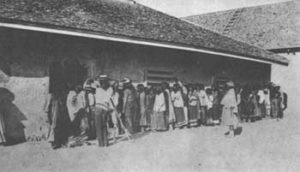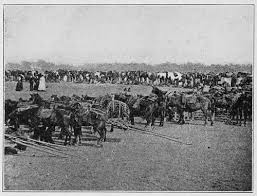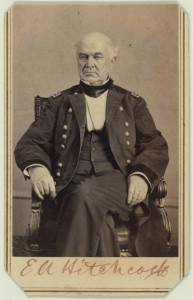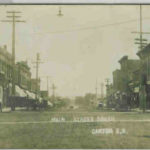Annuity payments could be a time of festivity (see last post) even though merchants and alcohol traders were often on hand with bad deals for Native Americans with spending money. Ration disbursements, though also eagerly anticipated, could be an opportunity for outright fraud at the hands of the people trusted to make them.
Fraud occurred on one end when the goods themselves were of poor quality. Some contractors sold inferior or sick cattle to the government to use for rations or sent spoiled or infested goods. In one instance, corn that had been on a stranded boat during winter rains and snows became rotten and the agent wanted to disburse it anyway.
Other disbursing agents–often civilians with contracts–routinely shorted the recipients of corn and beef by claiming full weights or amounts when they were obviously less than stated.
Tribes had little recourse when disbursing agents were dishonest, as the nearby military authorities were frequently indifferent to the abuses. In 1841, so many complaints were made to authorities in Washington (DC) that the Indian Service sent Major Ethan Allen Hitchcock to the Ft. Smith region to investigate. Once rations were disbursed under his supervision, the complaints stopped. Unfortunately, after he left and new contractors took over disbursements, the same fraud began again.






